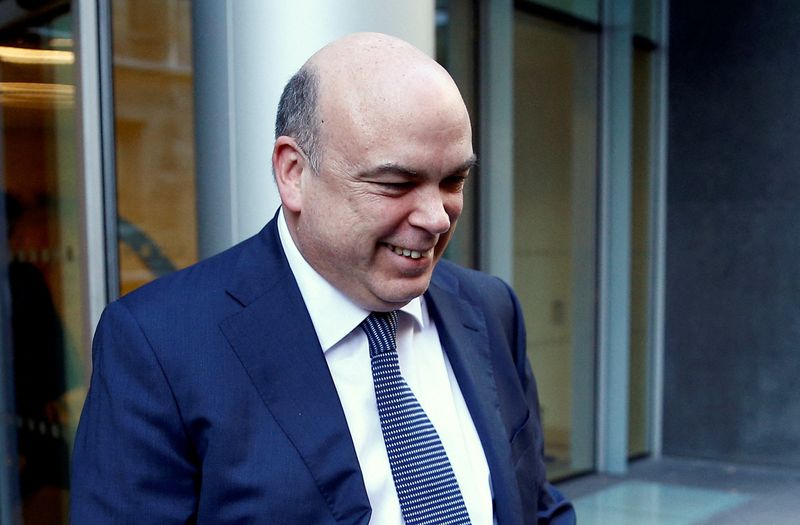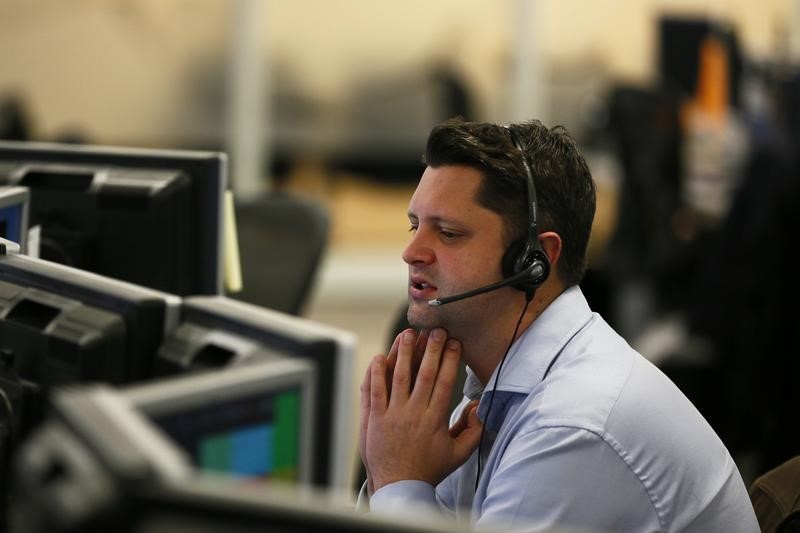By Jody Godoy and Abhirup Roy
SAN FRANCISCO (Reuters) – Mike Lynch’s lawyers on Monday portrayed the British technology pioneer as a shrewd entrepreneur as prosecutors in a San Francisco court blasted him as a greedy fraudster, and jurors will soon weigh allegations that Lynch stole Hewlett-Packard cheated on $11 billion takeover. from his software company.
The 2011 deal was one of the largest British technology deals at the time, but quickly collapsed. HP (NYSE:) wrote down Autonomy’s value by $8.8 billion within a year of the acquisition.
Assistant U.S. Attorney Robert Leach told jurors in their closing arguments that they should have no reasonable doubt that there was fraud at Autonomy, and that Lynch was in charge.
The federal prosecutor urged jurors to follow the money, saying Lynch made 500 million pounds ($640 million) from the HP deal.
“Dr. Lynch had 500 million reasons to defraud HP. It tells you volumes about who was in charge and who benefited from it,” Leach said.
Lynch and former Autonomy chief financial officer Stephen Chamberlain are charged with fraud and conspiracy for allegedly plotting to inflate the company’s earnings beginning in 2009, in part to entice a buyer.
The Cambridge University-educated entrepreneur took the stand in his own defense during the trial, denying wrongdoing and telling jurors that HP had bungled the integration of the two companies.
Lynch’s attorney Brian Heberlig told jurors Monday that the testimony was devastating to the prosecution’s case.
“It was more than reasonable doubt. It was the truth,” he said, as jurors saw a large photo of Lynch with the tech founder’s descriptions including “smart” and “focused on the future.”
Lynch’s defense team scored a victory last week when U.S. District Judge Charles Breyer threw out a securities fraud charge because it was not supported by evidence. Lynch still faces one count of conspiracy and 14 counts of bank fraud.
Prosecutors say the pair padded Autonomy’s finances in a variety of ways, including outdated agreements and “return” deals that provided cash to customers through bogus contracts.
During the trial, which began in mid-March, jurors heard from more than 30 government witnesses, including Leo Apotheker, the former HP CEO who was fired weeks after the Autonomy deal was announced.
Lynch’s legal team has argued that HP was so eager to acquire Autonomy before potential competitors that it quickly conducted due diligence before the sale.
On the stand, Lynch said he had focused on technical issues and had entrusted finance and accounting decisions to Sushovan Hussain, Autonomy’s then chief financial officer.
Hussain was convicted separately in a 2018 trial in the same court on charges of conspiracy, bank fraud and securities fraud in connection with the HP deal. He was released from US prison in January after serving a five-year sentence.
Lynch was one of Britain’s leading technology entrepreneurs, drawing comparisons to Apple (NASDAQ:) co-founder Steve Jobs and Microsoft (NASDAQ:) co-founder Bill Gates.
The Autonomy acquisition was intended to boost HP’s software business. Instead, it led to a series of bitter and expensive legal battles.
HP largely won a civil case against Lynch and Hussain in London in 2022, although no ruling has yet been made on damages. The company is demanding $4 billion.

Closing arguments in the case are expected to conclude Tuesday before the jury begins deliberations.
(This story has been refiled with the word “lawyers” removed from the headline)


